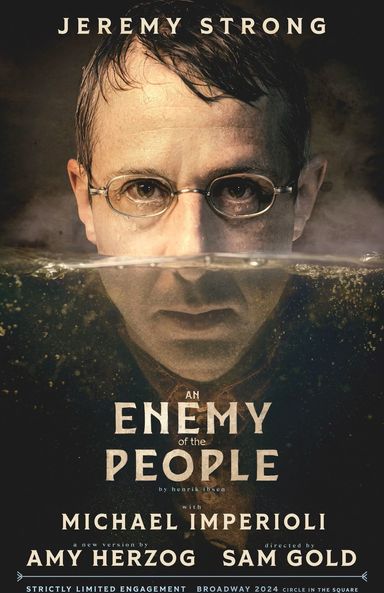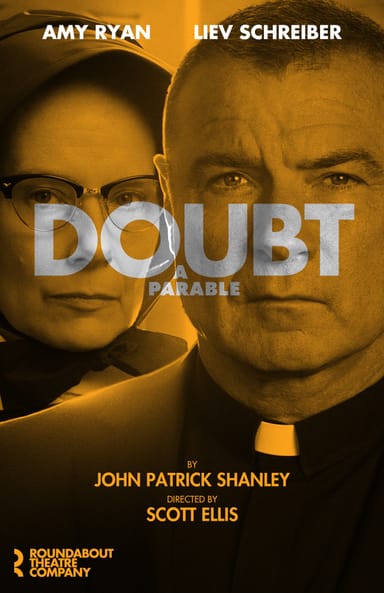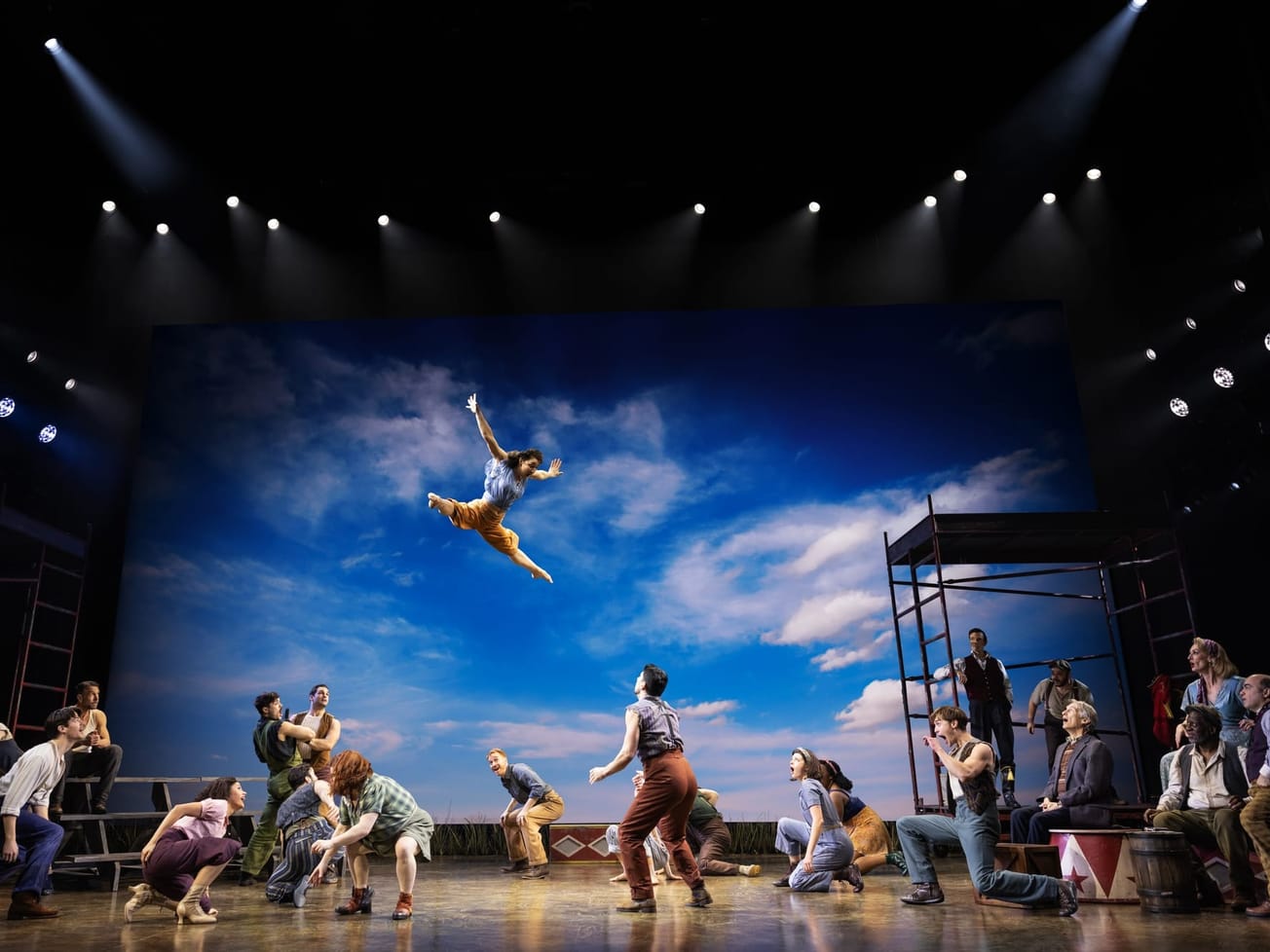The 2021-2022 Broadway season and subsequent Tony Award nominations encompass a historic variety in styles, settings and narratives, as well as a range of creators behind the productions. But when thinking about the nominated shows as a whole, a common theme emerges: reexamining history.
From King Henry VIII’s 500-year-old English Tudor court reframed through the eyes of its women in “SIX” to America’s 2008 Great Recession told from the perspective of factory workers in “Skeleton Crew,” three of the five shows nominated for Best Musical and four of the five works singled out for Best Play confront history directly. It’s as though Broadway’s writers agreed to venture on individual quests to bare lost stories and perspectives. Of course, they didn’t. So what is it that encouraged so many writers to look backward? And if theater is our classroom, what are so many of its greatest leaders trying to teach us?
Lucy Moss and Toby Marlow, co-creators of Best Musical nominee “SIX,” wanted to prove that one could use the same facts they’d been taught in U.K. history classes — the facts permeating pop culture about Henry and his six wives — and reconstruct a different history. “When something is factual information and it’s presented to you as, ‘This is what happened then,’ you don’t realize that, actually, it’s interpretation — that actually it’s somebody’s opinions, somebody’s narrative of [the facts],” Moss says.
“Perhaps there’s a reason, for example, why Anne Boleyn was remembered as being manipulative because she was a woman with ambitions,” Marlow adds. “The patriarchal spin on that is for them to depict her in this evil, manipulative way. So here’s a boldly contrasted depiction using all the same facts, not because we’re saying, ‘This is what the actual history was,’ but, ‘What if?’
“What we hope ‘SIX’ evokes audiences to contemplate is, when you’re experiencing a bit of history, to think about who’s telling it and to always be interrogative of it,” Marlow continues. “History is always subjective. Someone is telling you the history. Think about who that is in relation to what the subject matter is.”
Pulitzer Prize and previous Tony winner Tracy Letts challenges who controls narratives with his latest Best Play nominee, “The Minutes.” Set at a town council meeting in the allegorical municipality Big Cherry, a query about how the town came to be and where it got its name causes an awkward scrum of avoidance among council members — common when it comes to real-life avoidance of U.S. history, land acquisition and the underlying taboo topic: Indigenous genocide.
“The play deals with not only the way we conduct our politics, but our history — the way we tell our story of history versus our actual history,” says Letts, “and whether or not we’re going to ever address our actual history.
“I don’t know how we do move forward unless we begin to reconcile some of the stories of our past,” he sighs. “You just can’t treat the wound and not treat the infection.”
Perhaps this season is an attempt to heal from the root by reconciling that past — especially when it’s the industry’s own. Roundabout Theatre Company’s mounting of Alice Childress’ “Trouble in Mind” hurled the realities of being Black in the American theater onto America’s biggest stage. “I am disappointed that so much of what Alice wrote remains true,” says Charles Randolph-Wright, who directed the first-ever Broadway production of the 1955 work, which is nominated for Best Revival of a Play. “It was amazing to see audiences stunned by the truth she told.”
The resurrection of this play exposed the ugly truths of history — and today, including that people can only correct what they will acknowledge. “Trouble in Mind” provides a previously missing foundation on which to build. “When you have a past, you have a present and a future,” Randolph-Wright explains. “So many past artists are ignored, which gives people permission to ignore present artists.”
The same is true beyond artists. Dominique Morisseau’s take on the auto-industry crash in “Skeleton Crew” zooms in on the forgotten lives of Detroit factory workers. Morisseau never uses phrases like “bailout” and “recession” in the play, which moves audiences away from policies and awakens them to the individual. “Maybe the biggest hope I have is that people are reminded of their own humanity and maybe of our collective fragility as laboring people,” she says.
Meanwhile, Martin McDonagh, Best Play nominee for “Hangmen” — which indicts the moment in England when hanging as capital punishment had been abolished — says, “It’s right to constantly reevaluate who we are as people, as citizens of a country, to reexamine what our countries, our governments, have really been like over the centuries — particularly those that see themselves as the most civilized.”
And yet, “Hangmen,” “The Minutes,” “Trouble in Mind” and even the sweeping “Lehman Trilogy” (which chronicles 163 years, from the Lehman family’s emigration to their financial empire’s cataclysmic downfall) force audiences to consider personal responsibility in establishing these structures and their histories. As “Lehman” adaptor Ben Power says, “The play asks the audience to consider the systems and structures of our society — political, financial and familial — and think about how they were created and how they have evolved.
“I think the biggest lesson is that even the biggest, most catastrophic global events come down to human beings,” he says. “They emerge from individuals, with the same anxieties and ambitions as any of us. To understand the great tides of politics or economics, in the end, it’s all about people.”
The idea that owning up to history creates a future for all similarly becomes clear with a fresh take on the Depression Era in “Girl from the North Country.” It’s also the hope that “Paradise Square” co-writer Larry Kirwan found in the lost story of his Tony-nominated musical, which excavates New York City’s Five Points neighborhood circa 1863, a time when, even amid the American Civil War, Black people and Irish immigrants bound together to create an integrated community. “At the worst possible time, they were able to amalgamate and create the beginnings of a new society, not just a new society but the very first vision of American culture,” says Kirwan. “The lesson to be learned is that, if in those really bad circumstances people can get together, we can overcome a lot of the problems that we have nowadays.”
For her part, “Skeleton Crew” scribe Morisseau agrees: “If I personally learn from history, I will be able to envision a different kind of future and then I can make it so.
“I used to say, ‘Our history keeps repeating itself until we get it right,’ but I also feel like it’s just going to repeat itself [because] life is cyclical,” she says. “So thinking about: What am I trying to excavate about history or what do I want from that? I want to be fortified through history, that I have a place through [it]. That history teaches me how to be here and what I can survive.”
Perhaps this crop of plays and musicals materialized on Broadway after a once-in-a-hundred-years pandemic and a simultaneous cultural upheaval that threatened humanity’s survival not by happenstance, but because of its timing.
“Chaos and crisis and unrest, those are the times that make you forget who you are and what you’re made of,” says Morisseau. “And I think that theater can remind us [of] who we really are and what we’re actually made of. What I want my work to be doing right now is just remind us of who we are.”






















































